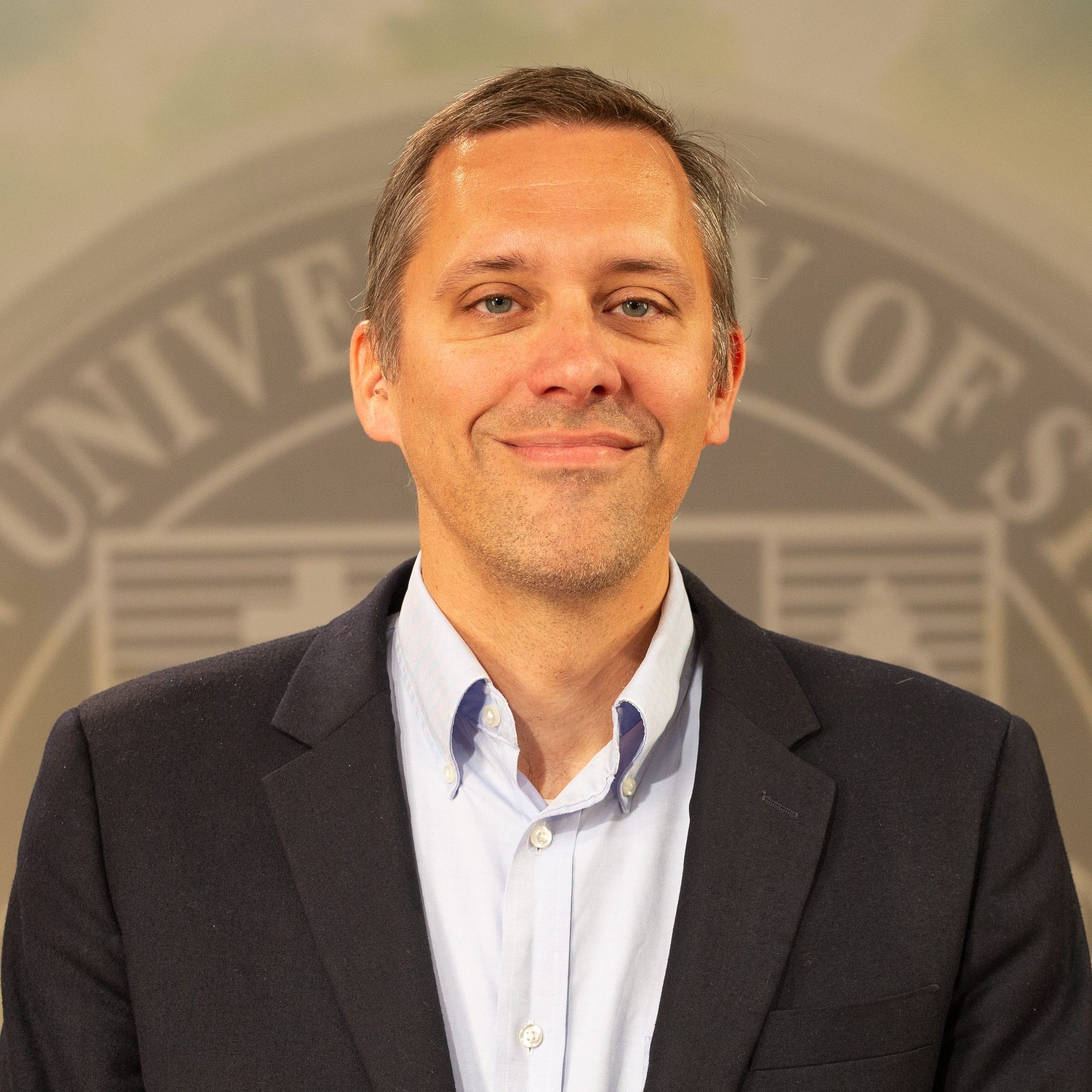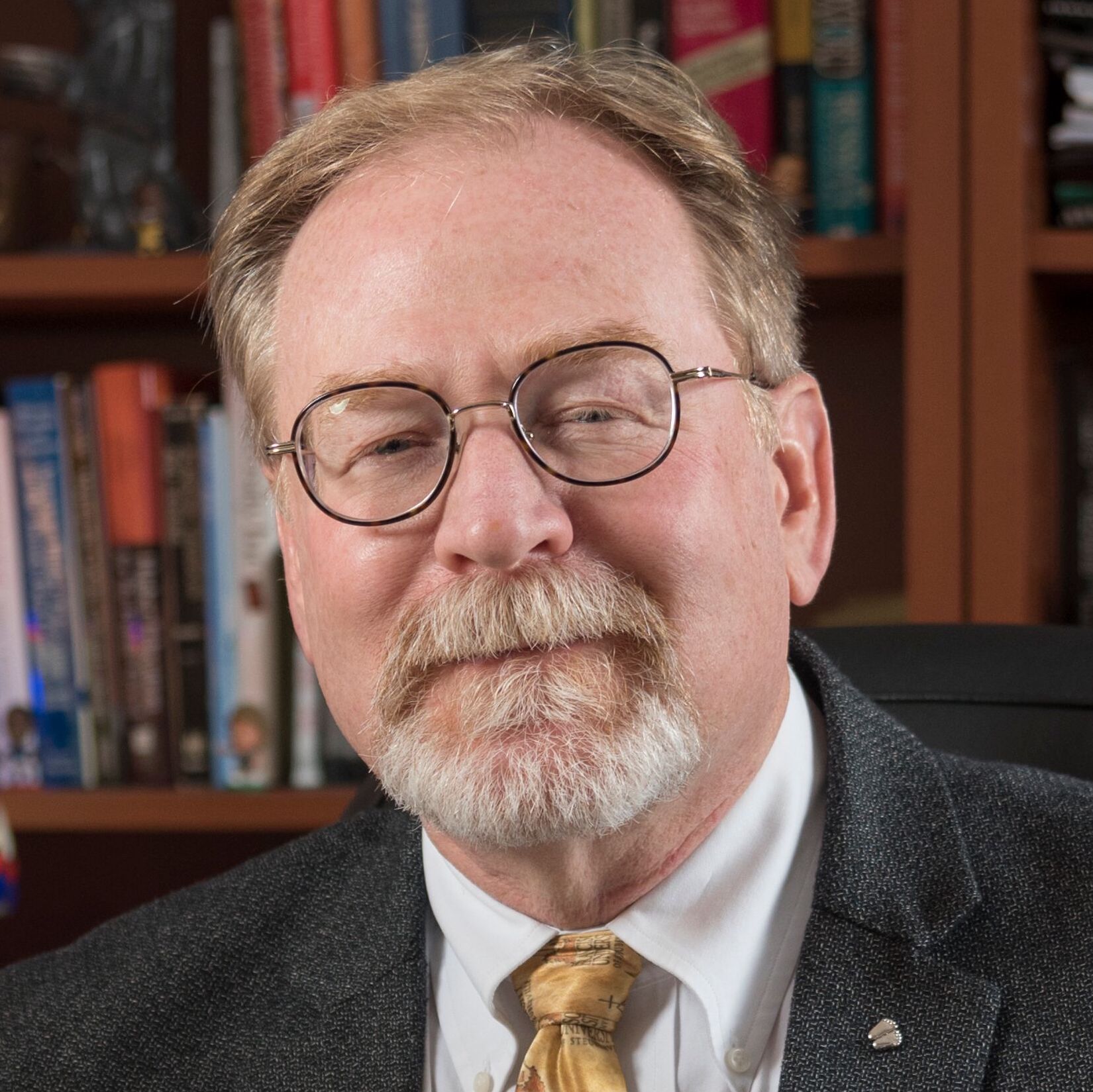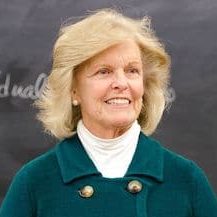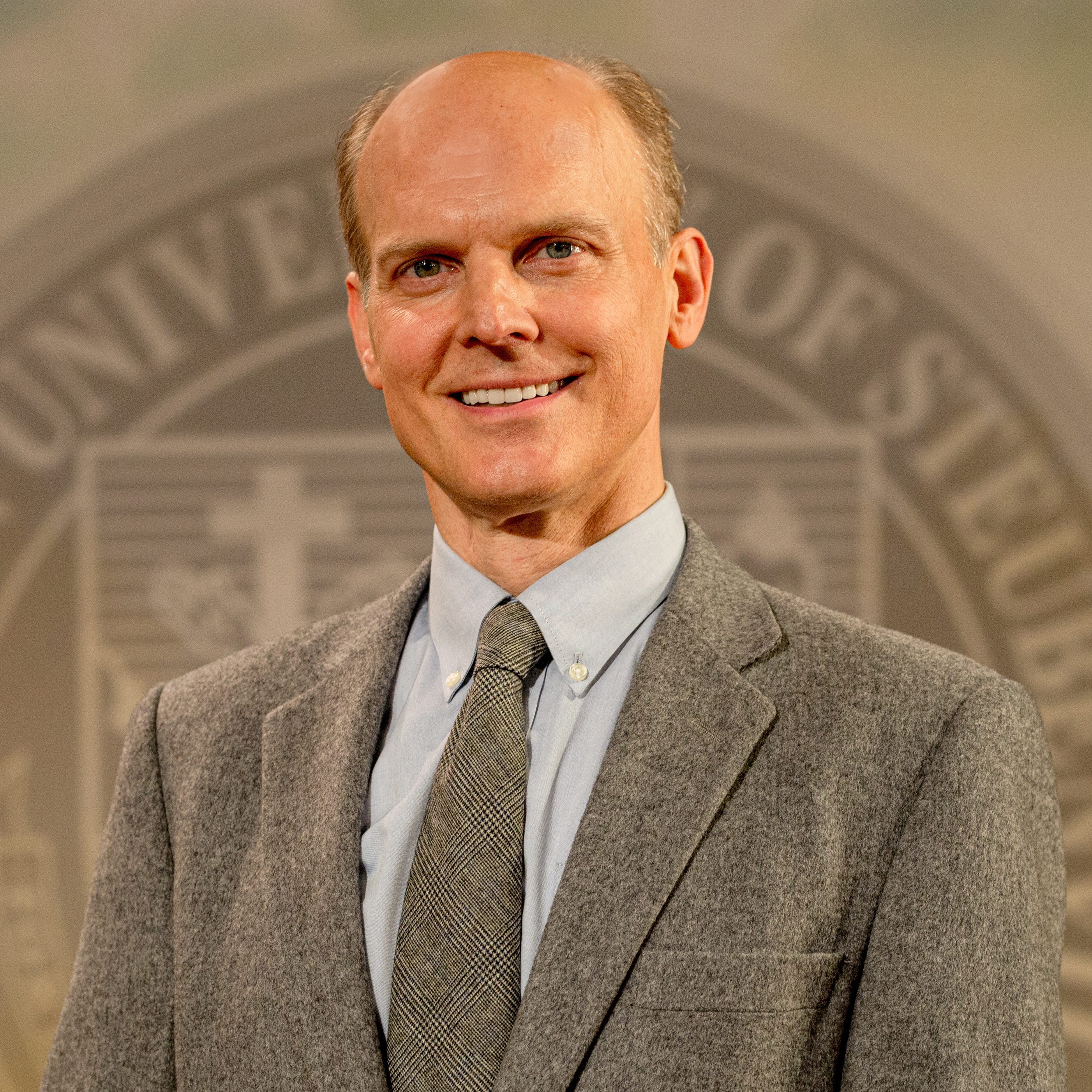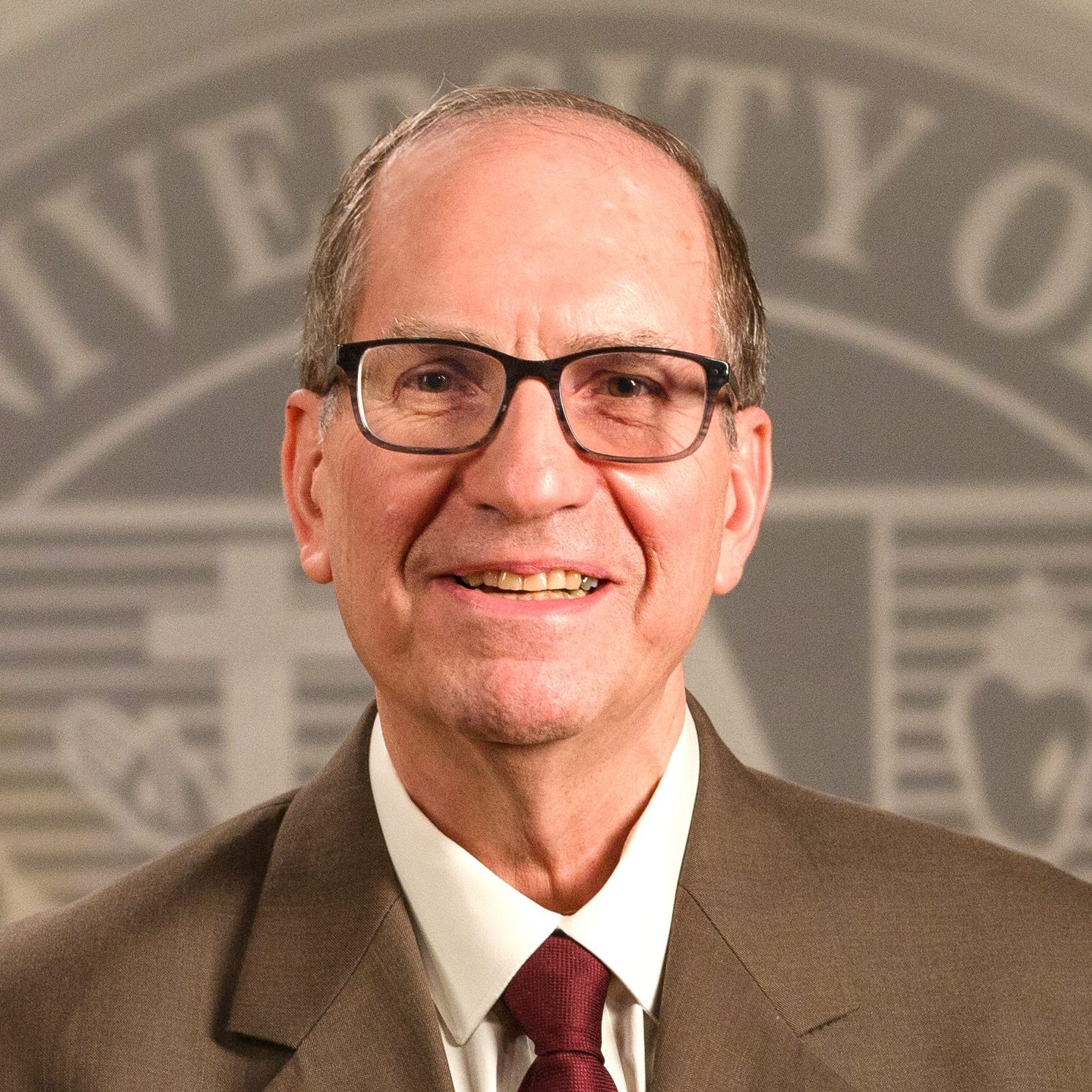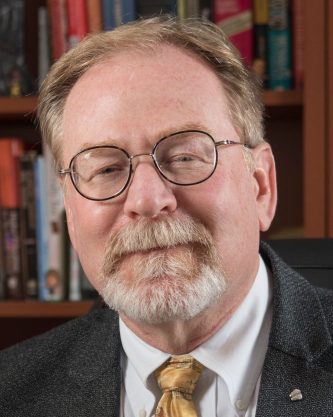
The plan was law school…at least at first. That’s why, as a freshman at Notre Dame, Daniel Kempton decided he would major in political science. The plan, however, quickly changed.
“By my junior year, I was so in love with political science, I didn’t even bother applying to law school,” Kempton says.
Where he did apply was the University of Illinois, Urbana-Champaign. There, he completed both his master’s and PhD in political science. He then went on to teach political science at Northern Illinois University for two years, before winning a Fulbright scholarship in 1989 to teach at Rhodes University in South Africa.
“With the advances made by the culture of death, Catholic higher education is more vital than ever.”
When his Fulbright year was over, he returned to Northern Illinois, where he taught for the next 21 years. He also published extensively, writing two books as well as dozens of reviews, essays, journal articles, and more. In 2008, his work on the politics of post-communist Russia helped him earn a second Fulbright Scholarship, this time to Tver State University in Russia. Upon his return, he took on the directorship of Northern Illinois’ Honors Program.
Then, in 2010, a new opportunity presented itself. Kempton learned that Franciscan University was searching for a new vice president for Academic Affairs. Over the years, Kempton had heard a great deal about the school, and the chance to both teach and work at a place where the Catholic faith could be integrated into the classroom was one he didn’t want to pass up.
“I teach topics that have important ethical dimensions—terrorism, democracy, diplomacy. It’s hard to teach those subjects without a moral basis,” he explains.
Franciscan likewise did not want to pass up the chance to bring Kempton into its fold, and in July 2011, welcomed him as both the new VPAA and professor of political science.
“With the advances made by the culture of death, Catholic higher education is more vital than ever,” says Kempton, reflecting on his new role. “College is the place where most young people lose their faith, in large part because it’s actively challenged by faculty whose worldview is primarily secular. At Franciscan, however, we can do something different, giving students the tools they need to pray, work, and live as Catholics in the world. I’m excited to be a part of that.”
- Ph.D., Department of Political Science, University of Illinois at Urbana-Champaign (1988)
- A.M., Department of Political Science, University of Illinois at Urbana-Champaign (1984)
- B.A., in Government and Russian, University of Notre Dame (1982)
Professional Experience
- Director, University Honors Programs, Northern Illinois University
- Chair, Department of Political Science, NIU
- Director of Undergraduate Studies, Department of Political Science, NIU
- Assistant Chair, Department of Political Science, NIU
- Director of Graduate Studies, Department of Political Science, NIU
Awards and Honors
- Nominee, Students’ Choice Award, Student Association, Northern Illinois University (2010)
- NIU Study Abroad, Oriel College, Oxford, United Kingdom (2010, 2006, 2003)
- Outstanding International Educator, NIU (2008)
- Departmental Nominee, Presidential Teaching Professorship (2008)
- Recipient, Department of Political Science Teaching Award (2007)
- Departmental and College Nominee for the Excellence in Undergraduate Teaching Award (2007)
- City of Sycamore, Plan Commission (1997-2000)
- NIU Graduate School Grant for Faculty Research and Artistry (1994, 1991, 1989, 1988)
- (with Matthew Rossow) The Extraordinary Rendition of Abu Omar: Ethics and the War on Terror. Pew Case Studies in International Affairs, Case #297, Washington, D. C.: the Institute for the Study of Diplomacy Publications, School of Foreign Service, Georgetown University, 2008.
- (with Adriana Piatti-Crocker) Gender Quotas in Afghanistan: Solution or Problem? Pew Case Studies in International Affairs, Case #296, Washington, D. C.: the Institute for the Study of Diplomacy Publications, School of Foreign Service, Georgetown University, 2008.
- (with Michael Killoran) One Rock: Two Principles: The Gibraltar Problem, Pew Case Studies in International Affairs, Case #281, Washington, D. C.: the Institute for the Study of Diplomacy Publications, School of Foreign Service, Georgetown University, 2005. (With Teaching Notes, 11 pp.).
Full List
- (with Susan Balc) “High Seas Satellite Launches: Paragon of Post Cold War Cooperation or Unregulated Danger?” Pew Case Studies in International Affairs, Case #267, Washington, D. C.: the Institute for the Study of Diplomacy Publications, School of Foreign Service, Georgetown University, 2003.
- (with Terry D. Clark) “An Introduction to Center-Periphery Relations,” in Daniel R. Kempton and Terry D. Clark, eds., Unity or Separation: Center-Periphery Relations in the Former Soviet Union. (New York: Praeger Publishers, 2002, 1-10).
- “Three Challenges to Assessing Russian Federalism,” in Daniel R. Kempton and Terry D. Clark, eds., Unity or Separation: Center-Periphery Relations in the Former Soviet Union. (New York: Praeger Publishers, 2002, 13-45).
- “The Case of Sakha: Bargaining with Moscow,” in Daniel R. Kempton and Terry D. Clark, eds., Unity or Separation: Center-Periphery Relations in the Former Soviet Union. (New York: Praeger Publishers, 2002, 73-98).
- “Assessing Russian Federalism,” in Daniel R. Kempton and Terry D. Clark, eds., Unity or Separation: CenterPeriphery Relations in the Former Soviet Union. (New York: Praeger Publishers, 2002, 189-214).
- (with Terry D. Clark) “Conclusions and Assessments: Strategies in Center-Periphery Relations,” in Daniel R. Kempton and Terry D. Clark, eds., Unity or Separation: Center-Periphery Relations in the Former Soviet Union. (New York: Praeger Publishers, 2002, 313-327).
- “Russian Federalism: Continuing Myth or Political Salvations,” Demokratizatsiya: The Journal of Post-Soviet Democratization, vol. 9, no. 2, Spring 2001, pp. 201-242.
- (with Roni Du Preez) “Up in Arms: Russia’s Sale of Cryogenic Rocket Engines to India,” Pew Case Studies in International Affairs, Case #228, Washington, D. C.: the Institute for the Study of Diplomacy Publications, School of Foreign Service, Georgetown University, 2000.
- “Budgetary Politics in the Russian Federation: The Case of Sakha (Yakutia),” International Journal of Public Administration, v. 22, nos. 9 & 10, 1999, pp. 1345-1385.
- (with Roni Du Preez) “Namibian-De Beers State-Firm Relations: Cooperation and Conflict,” The Journal of Southern African Studies (1997), 23(4), 585-615.
- “Russia and De Beers: Diamond Conflict or Cartel,” The South African Journal of International Relations, 3(2), (1996), 94-131.
- “The Republic of Sakha (Yakutia): The Evolution of Center-Periphery Relations in the Russian Federation,” Europe-Asia Studies, 48(4), (1996), 587-613.
- (with Richard M. Levine) “Soviet and Russian Relations with Foreign Corporations: The Case of Gold and Diamonds,” Slavic Review, 54(1), (1995), 80-110.
- “Lessening Political Violence in South Africa: The CODESA Decision,” Pew Case Studies in International Affairs, Case 366A, 366B, Washington, D. C.: the Institute for the Study of Diplomacy, Georgetown University, (1995). 19pp.
- (with Lebona Mosia) “The International Community in South Africa’s Transition to Non-racial Democracy,” International Affairs Bulletin, 16(3), (1992), 5-31.
- “Africa in the Age of Perestroika,” Africa Today, 38(3), (1991), 7-29.
- “Superpower Cooperation in Southern Africa,” in Edward A. Kolodziej and Roger E. Kanet, eds., The Cold War as Cooperation: Regional Patterns and Prospects. Baltimore: Johns Hopkins University Press, (1991): 196-223.
- “New Thinking and Soviet Policy Toward South Africa,” Journal of Modern African Studies, 28 (4), (1990), 545-572.
- (with Roger E. Kanet) “Soviet Policy in Africa,” in Jane Shapiro Zacek, ed., The Soviet Postwar Generation: Major Issues Facing the New Leadership. New York: Professors’ World Peace Academy (1988), 179-224.
- (with Roger E. Kanet) “Western Europe in Global Strategy: Soviet Power and the Global Correlation of Forces,” in Ray S. Kline, James Arnold Miller and Roger E. Kanet, eds. Western Europe in Soviet Global Strategy. (Boulder: Westview Press, 1987): 91-104.
- “A Unique Step in Faith.” Franciscan, Summer 2020, pp 29.
- “Faith and Crisis.” Franciscan, Spring 2020, pp. 24.
- “A Shining Beacon.” Franciscan, Winter 2020, pp. 25.
- “Passionately Catholic.” Franciscan, Autumn 2019, pp. 21.
Full List
- “Fides et Ratio at Franciscan.” Franciscan, Summer 2019, pp. 27.
- “Shared Governance, Schools, and Deans.” Franciscan, Spring 2019, pp. 11.
- “The Blessing of Special Needs.” Franciscan, Winter 2019, pp. 25.
- “Be Not Afraid.” Franciscan, Autumn 2018, pp. 21.
- “The Splendor of the Truth.” Franciscan, Summer 2018, pp. 25.
- “Leadership from a Catholic Perspective.” Franciscan, Spring 2018, pp. 23.
- “The Pro-Life Movement is Winning.” Franciscan, Winter 2018, pp. 23.
- “Do Whatever He Tells You.” Franciscan, Autumn 2017, pp. 23.
- “Catholic Teaching and Terrorism.” Franciscan, Summer 2017, pp. 23.
- “Why Franciscan?” Franciscan, Spring 2017, pp. 23.
- “Advancing the Treasury of Human Knowledge.” Franciscan, Winter 2017, pp. 23.




